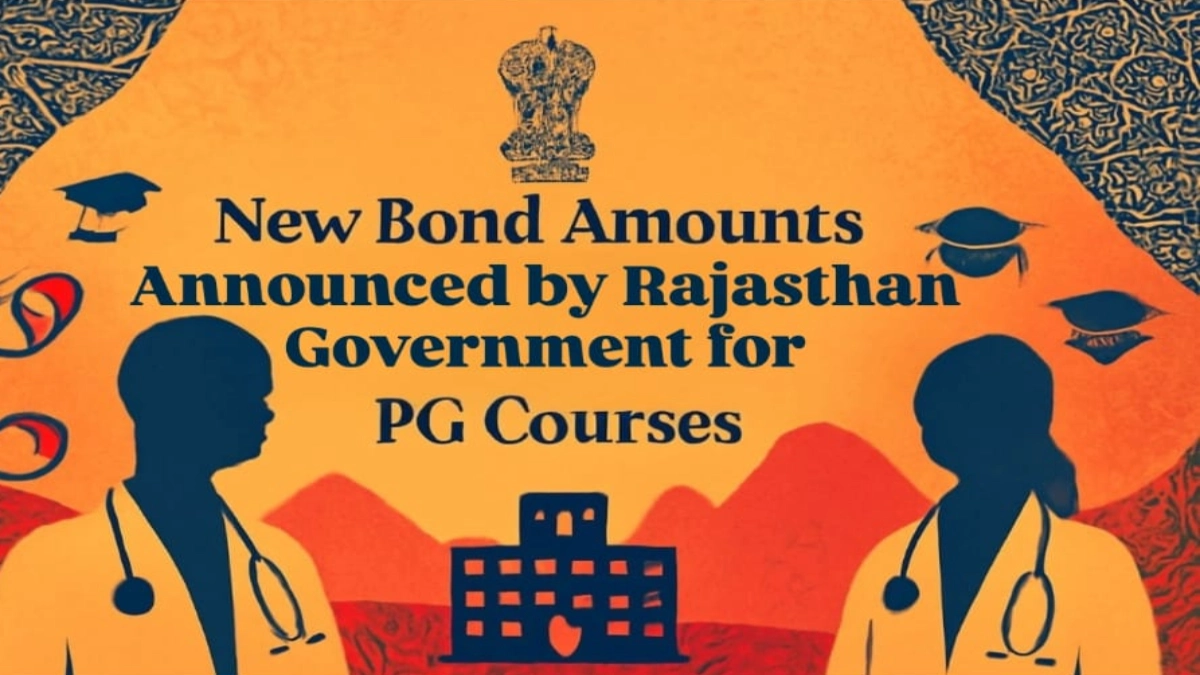The Rajasthan Government has made a significant move to define the future of the state’s postgraduate medical education by declaring new bond values for NEET PG courses, which would come into effect from the 2025-26 session. The decision, aimed at balancing opportunity, service, and the needs of state health care, makes a significant revision of what would-be specialists have to pledge financially when joining government as well as government-aided medical colleges.
Read Also: List of PG Medical Colleges in Rajasthan 2025-26
What’s New for Medical PG Students?
The most recent directive puts all the clinical and non-clinical branches into four categories, each having a different bond amount that students commit to paying if they fail to complete their service commitment upon completing their course. The idea is to motivate doctors to work in Rajasthan’s public health sector, especially in specialties in high demand.
- The most popular specialties, such as Dermatology, Radio-diagnosis, Gynaecology and Obstetrics, and General Medicine, will attract a bond of ₹1.5 crore-a symbol of their popularity and the sheer necessity of such doctors in the state.
- Specialties like Paediatrics, Orthopaedics, and Psychiatry will also carry with them a ₹1 crore bond, acknowledging their significant role in the provision of healthcare.
- For other significant specialties-ENT, Anaesthesia, Microbiology, etc.-the bond will be ₹50 lakh.
- Lastly, research and core subjects such as Biochemistry, Community Medicine, and Anatomy will carry the lowest bond of ₹25 lakh.
Read Also: Rajasthan NEET PG Seat Allotment 2025
Why This Change Matters?
This new format is designed to oblige the most talented graduates who enjoy subsidized medical education with the altruism of contributing back to society-closing health gaps throughout Rajasthan. By organizing bonds by specialty, the government is hoping to allocate physicians more equitably and fulfill actual demand at hospitals and clinics, particularly in underdeveloped areas.
The policy, which came into effect immediately, highlights the state’s resolve towards robust, responsive public health-weighing student, patient, and system interests. For aspiring medical professionals in the future, knowledge about these new bond requirements is now part of the critical planning for one’s postgraduate path in Rajasthan.

